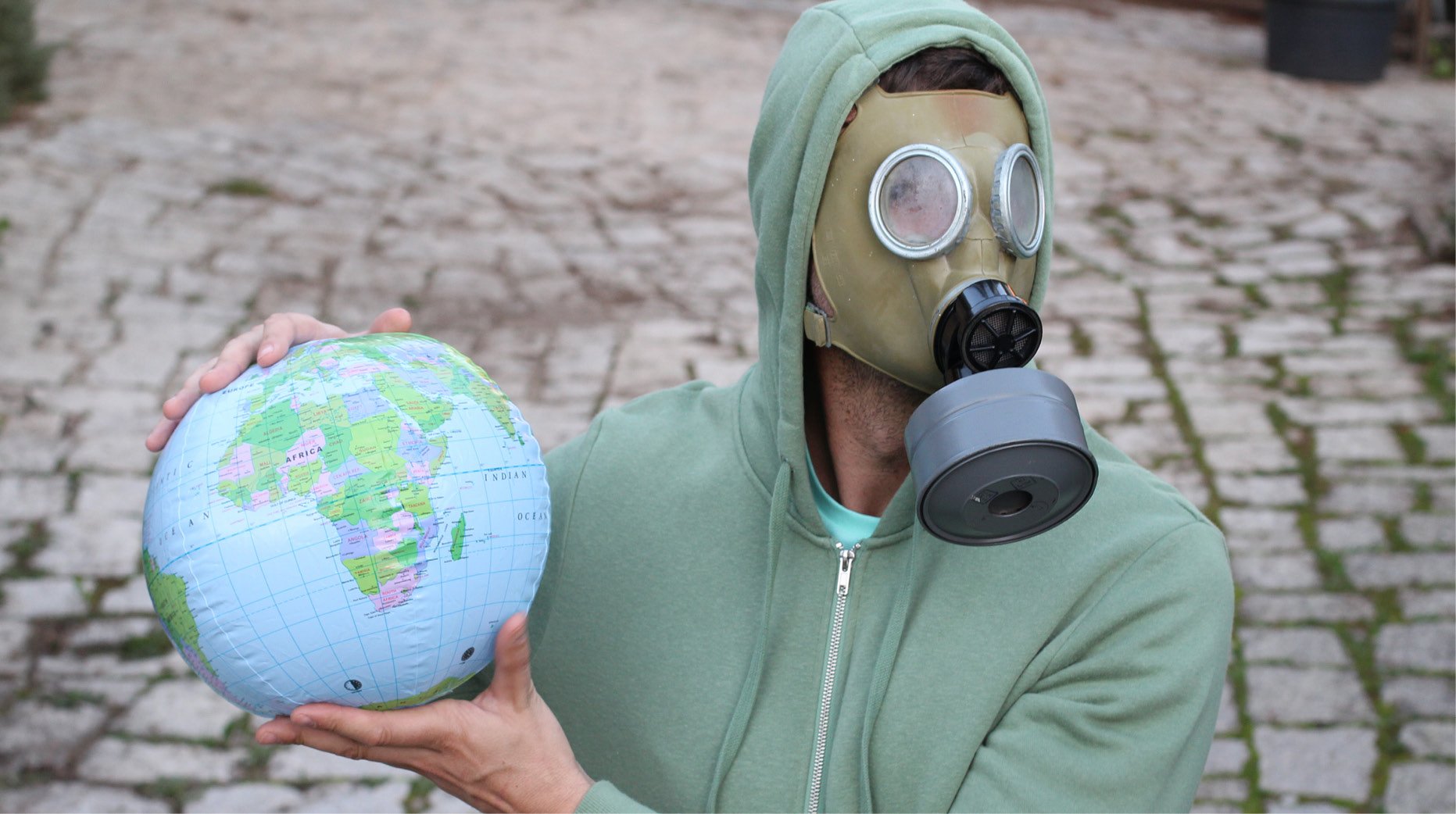The Dark and Lonely World of Depression
The roots of depression can take hold before a person even realises there is a problem. Some have described depression as a warm, fuzzy blanket laying over your body. At first, this warmth and comfort are welcome. But, before long, a person can feel smothered and trapped by the same blanket, tangled and unable to escape. Depression is not always straightforward and easy to diagnose--or to treat. However, you’re never alone. There are people who love you, who value you, and who smile at the thought of you.
The Symptoms Of Depression Aren’t Always Easy To Spot
Depression isn’t something you can simply “snap out of”. People who do not suffer from depression may not understand how a depressed person feels or behaves. Plus, the symptoms can be hard to spot, especially if the depressed person is skilful at hiding their symptoms. The range can be rather large, from mild but persistent to severe and life-threatening. According to the Mayo Clinic1, things to look for in others (or yourself) include:
- Feelings of sadness
- Feelings of hopelessness
- Feelings of worthlessness
- Loss of interest in normal activities
- Tiredness
- Difficulty sleeping
- Frequent thoughts of death or suicide
- Suicide attempts or suicide
Even if things are difficult in your life, depression is not a normal part of aging or life in general. No one hesitates to have a broken bone set, but so many people are reluctant to seek help for mental issues. Depression affects at least 300 million of us around the world, so it’s more common than we think.2
While we often use the term “depression”, there are actually several types of depressive disorders, and up to 75% of the time, anxiety and depression occur together. Some of the types of depression include pure, mixed (depression and anxiety), over-focused, temporal lobe, cyclic and unfocused.3 So, even the blanket term “depression” may not always describe what is happening in a person’s brain.
The Hard Facts: Depression Is Common And Depression Is A Killer
The statistics regarding depression are sobering, and it’s difficult to comprehend why we aren’t doing more to prevent, diagnose and properly treat depression. 800,000 human lives are lost to suicide every year, and for every adult who succeeded, it’s estimated another 20 attempted suicide.4
- Australia: Experts estimate nearly half (45%) of Australians will experience a mental health issue at least once in their life, and around 1 million adults experience depression each year.5 The suicide rate in 2017 increased, taking the lives of over 3,000 Australians. In a given year, over 65,000 people attempt suicide.6
- United Kingdom: Around 3 million people in the UK are diagnosed with depression, resulting in nearly 10 million working days lost per year. Suicide claims the lives of 6,000 individuals, and more than half of people who commit suicide are affected by major depressive disorder.7
- United States: Depression affects 25 million or so Americans each year, or 5-8% of people over 18. 90% of people who die to suicide have a diagnosable mental disorder, and major depression accounts for half of these deaths. Suicide is the 10th leading cause of death overall (claiming 45,000 lives each year), and the second leading cause of death for those between 10-34.8
- Mexico: Data from Mexico as a whole is difficult to find, which is part of the problem. A 2002 survey found that 1 of every 8 individuals in Mexico suffered from some depressive disorder.9 The suicide rate has steadily increased, from 4.8 (per 100,000 people) in 2010 to 5.5 in 2015.10
Where Does Depression Come From?
Clinical depression can accompany many other physical problems in the body--or it can manifest on its own. A complete exam is necessary to assess total health and determine what the underlying cause of the depressive disorder is.
Risk factors include genetics (family history of depressive disorders), major life changes or stress, some physical illnesses (such as diabetes, cancer and Parkinson’s disease), and even medications used to treat other ailments.11
Using brain imaging techniques such as SPECT, scientists are able to map the brain by measuring the density and distribution of neurotransmitter (the chemicals in your brain) receptors. Areas that we now know to play a major role in depression include the amygdala, the hippocampus and the thalamus. In one study, depressed women had a smaller hippocampus compared to women who were not depressed.12
Prevention Is The Key To Reduce Depression
Unfortunately, for many of us, there is no single magic pill to cure depression. The process instead may involve combinations of therapy, meditation, lifestyle changes (including diet and exercise), doctor visits, pharmaceuticals and other treatments, including neurofeedback. The important thing to remember, however, is there is ALWAYS hope, no matter how bleak things may seem.
If you see someone struggling, or if someone’s behaviour has changed (remember, people often hide the symptoms of depression), reach out to them. Depression can strike anyone, and it could be your parent, your boss, your secretary, your child, your gym coach, or YOU. Resources to help you connect with others (or for yourself) include:
- https://www.ruok.org.au/ (Australia)
- https://www.prevent-suicide.org.uk/find_help (United Kingdom)
- https://suicidepreventionlifeline.org/ (United States)
- http://ibpf.org/resource/suicide-hotline-mexico (Mexico)
- https://www.iasp.info/resources/Crisis_Centres/ (Worldwide)
Prevention is the key to reducing depression around the world. As conditions continue to become more stressful in the global economic and political spheres, we must be ready to act to avoid the tragic consequences related to depressive disorders. Our modern medicine often does not get at the root of the problem. Without facing the cause of the depression, treatments are never going to be able to fully cure the ailment.
In the documentary, Make Me A Leader, experts from around the world speak about brain health and how our heart, gut and brain are affected by depression. Depression is a whole-body illness, and the disease impacts so much more than our brains.
The first thing to do, when you have a mental illness, when you have depression, dementia, any of these things, is to start to treat the foundation. There may be psychological issues, there may be trauma and stress, but those things are much easier to deal with once you build the foundation of health.
Dr Mark Hyman in the docu-series Broken Brain
The doctors and clinicians we see are typically pressed for time, and prescribing medications is a common first-step treatment. While medications can absolutely be appropriate in some cases (and help save lives!), medicines alone may not treat whatever is causing depressive symptoms. Instead, we should embrace whole-body health through proper diet, regular exercise, getting enough sleep and relaxation time and avoiding triggers (including drugs and alcohol) for a healthier brain.
Remember, it’s NEVER too late to treat depression. Help is only a phone call, a text or a tweet away, and you never know when a kind word or a “how are you doing?” can save a life. Depression doesn’t have to be a dark and lonely way to live, and by being compassionate to those around us we can help others find the treatment they need to live a healthier, longer and happier life.
Depression isn’t the only mental health crisis we face as a world community. Stay tuned for my next article as we discuss the darkest side of depression--suicide.
Subscribe to our blog here to receive updates.
Citations:
1. Depression (major depressive disorder) - Symptoms and causes. Mayo Clinic, (2018, accessed 7 June 2019).
2. Depression, (accessed 7 June 2019).
3. Anxiety & Depression Treatment | Mental Health Therapy | Amen Clinics. Amen Clinics, (accessed 7 June 2019).
4. WHO. WHO | Suicide data. World Health Organization, (2018, accessed 7 June 2019).
5. Beyond Blue, (accessed 7 June 2019).
6. Facts about suicide in Australia | Black Dog Institute, (accessed 7 June 2019).
7. Depression in the UK: The Facts and Figures You Should Know, (accessed 7 June 2019).
8. Out of the Darkness Overnight Walk. American Foundation for Suicide Prevention, (accessed 7 June 2019).
9. Gonzalez D, Alvarez M. Depression in Mexico: Stigma and its policy implications. Yale Global Health Review.
10. OECD. Health at a Glance 2017: OECD Indicators. OECD Publishing, Paris. Epub ahead of print 2017. DOI: 10.1787/health_glance-2017-en.
11. NIMH » Depression, (accessed 7 June 2019).
12. Harvard Health Publishing. What causes depression? - Harvard Health. Harvard Health, (accessed 7 June 2019).
- i4 Neuroleader (353)
- Leadership & Culture (336)
- Brain Health & Wellbeing (206)
- Innovation (97)
- Performance (85)
- Our News (79)
- Collaboration (68)
- Agility (53)
- Practitioner Stories (44)
- In The Press (36)
- Make Me A Leader (33)
- Balance (31)
- Integration (30)
- Imagination (29)
- Awareness (23)
- Brain-Friendly Channel (22)
- Brain-Friendly Leadership (22)
- Communication (22)
- Curiosity (21)
- Inspiration (19)
- Intuition (19)
- Attitude (17)
- Courage (16)
- Adaptability (14)
- Case Studies (14)
- Drive (14)
- Generosity (13)
- Ethics (9)
- Mental Readiness (9)
- Influence (8)
- Retreat (8)
- Brain-Friendly Leadership (1)
- Oracle Cards (1)
- 1 November 2025 (2)
- 1 September 2025 (3)
- 1 August 2025 (5)
- 1 July 2025 (5)
- 1 June 2025 (2)
- 1 April 2025 (1)
- 1 March 2025 (8)
- 1 February 2025 (3)
- 1 September 2024 (4)
- 1 July 2024 (2)
- 1 June 2024 (6)
- 1 May 2024 (2)
- 1 April 2024 (3)
- 1 March 2024 (1)
- 1 November 2023 (1)
- 1 August 2023 (1)
- 1 July 2023 (2)
- 1 June 2023 (2)
- 1 May 2023 (4)
- 1 April 2023 (2)
- 1 March 2023 (7)
- 1 February 2023 (4)
- 1 January 2023 (1)
- 1 September 2022 (1)
- 1 May 2022 (3)
- 1 April 2022 (1)
- 1 March 2022 (5)
- 1 February 2022 (4)
- 1 January 2022 (4)
- 1 December 2021 (2)
- 1 November 2021 (4)
- 1 October 2021 (3)
- 1 September 2021 (6)
- 1 August 2021 (1)
- 1 April 2021 (1)
- 1 December 2020 (2)
- 1 November 2020 (1)
- 1 September 2020 (1)
- 1 August 2020 (1)
- 1 July 2020 (3)
- 1 June 2020 (4)
- 1 May 2020 (3)
- 1 April 2020 (4)
- 1 March 2020 (6)
- 1 February 2020 (4)
- 1 January 2020 (2)
- 1 December 2019 (3)
- 1 November 2019 (3)
- 1 October 2019 (5)
- 1 September 2019 (4)
- 1 August 2019 (4)
- 1 July 2019 (4)
- 1 June 2019 (5)
- 1 May 2019 (9)
- 1 April 2019 (9)
- 1 March 2019 (8)
- 1 February 2019 (7)
- 1 January 2019 (8)
- 1 December 2018 (5)
- 1 November 2018 (10)
- 1 October 2018 (16)
- 1 September 2018 (9)
- 1 August 2018 (10)
- 1 July 2018 (9)
- 1 June 2018 (8)
- 1 May 2018 (9)
- 1 April 2018 (9)
- 1 March 2018 (9)
- 1 February 2018 (8)
- 1 January 2018 (8)
- 1 December 2017 (6)
- 1 November 2017 (9)
- 1 October 2017 (9)
- 1 September 2017 (8)
- 1 August 2017 (10)
- 1 July 2017 (8)
- 1 June 2017 (8)
- 1 May 2017 (9)
- 1 April 2017 (8)
- 1 March 2017 (6)
- 1 January 2017 (3)
- 1 December 2016 (4)
- 1 November 2016 (5)
- 1 October 2016 (4)
- 1 September 2016 (2)
- 1 August 2016 (4)
- 1 July 2016 (4)
- 1 June 2016 (2)
- 1 May 2016 (3)
- 1 April 2016 (3)
- 1 March 2016 (7)
- 1 February 2016 (2)
- 1 January 2016 (5)
- 1 December 2015 (2)
- 1 November 2015 (2)
- 1 October 2015 (4)
- 1 September 2015 (2)
- 1 August 2015 (2)
- 1 July 2015 (1)
- 1 June 2015 (3)
- 1 May 2015 (4)
- 1 April 2015 (5)
- 1 March 2015 (3)
- 1 February 2015 (3)
- 1 January 2015 (3)
- 1 December 2014 (3)
- 1 November 2014 (3)
- 1 October 2014 (3)
- 1 September 2014 (5)
- 1 August 2014 (4)
- 1 July 2014 (5)
- 1 June 2014 (3)
- 1 May 2014 (1)
- 1 March 2014 (1)
- 1 December 2013 (2)
- 1 November 2013 (1)
- 1 July 2013 (1)
- 1 June 2013 (1)
- 1 May 2013 (3)
- 1 April 2013 (1)
- 1 March 2013 (2)
- 1 February 2013 (1)
- 1 January 2013 (2)
- 1 November 2012 (1)
- 1 October 2012 (1)
- 1 September 2012 (1)
- 1 August 2012 (2)
- 1 July 2012 (1)
- 1 June 2012 (1)
- 1 May 2012 (2)
- 1 April 2012 (1)
- 1 February 2012 (1)
- 1 January 2012 (1)
- 1 November 2011 (1)
- 1 October 2011 (3)
- 1 September 2011 (2)
- 1 July 2011 (1)
- 1 June 2011 (1)
- 1 May 2011 (1)
- 1 April 2011 (1)
- 1 March 2011 (1)
- 1 February 2011 (2)
- 1 January 2011 (4)
- 1 December 2010 (4)
- 1 November 2010 (3)
- 1 October 2010 (5)
- 1 September 2010 (4)
- 1 August 2010 (4)
- 1 July 2010 (3)
- 1 June 2010 (4)
- 1 May 2010 (7)
- 1 April 2010 (5)
Subscribe by email
You May Also Like
These Related Stories

The Modern Health Crisis - Suicide

Keeping Our Brains Healthy In A Toxic World



No Comments Yet
Let us know what you think